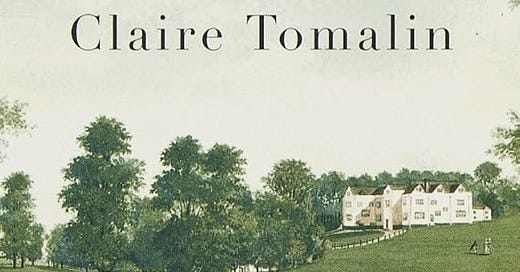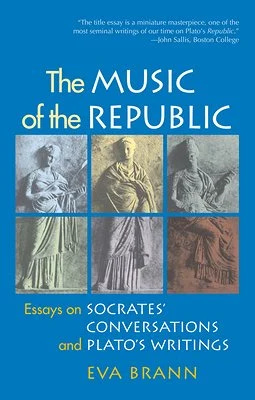From Marianne’s Desk:
In the past seven weeks, we have weathered a tropical storm and a hurricane here in Florida, and as the director of theatre, I have also weathered having to replace several directors in the season due to various unforeseen and extreme circumstances of the bureaucratic and personal variety. One of the replacements has taken over the direction of Kate Hamill’s rollicking adaption of Jane Austen’s Pride and Prejudice (read a great review of the drama, here). So, when I happened upon Claire Tomalin’s biography of Austen at the public library two months ago, I took it home and have been sneaking delicious chunks of it morning and night (much like I do with the dark chocolate the Professor brings me!)
Jane Austen: A Life by Claire Tomalin
Years ago, I directed Kate Hamill’s adaptation of Sense and Sensibility in an interpretation that literally coasted around our stage—over fourteen rolling pieces of furniture and scenery flying past at a go! You can see pictures here, if you like. When I directed that one, I emphasized to the cast that the narrative voice, so key to Austen’s appeal across the centuries, had been transmuted by Hamill into the stagecraft, and so it was up to their acting and my arrangement of the scenes to communicate the signature biting wit of the novelist.
Kate Hamill’s genius in her adaptation is “to read Pride and Prejudice through the lorgnette of game theory. The players: the four Bennet sisters, minor gentry maidens who will be left nearly penniless when their dad croaks. The strategy: beauty, wit and wiles.”
The playwright’s narrative voice can be found in the layering of bells and dances and games, as characters employ their many strategies to win at the marriage-mart. The Bennet sisters are in a race against time to secure their fortunes and their happiness (their father’s eventual death tactlessly foreshadowed by their mother at every opportunity).
Tomalin’s biography uses letters and other artifacts (journals, publications, drafts, parish records, etc) to bring us into the world in which Jane Austen led her quiet and prim, yet revolutionary life—choosing to forego marriage without love and writing six of the greatest novels in the English language across a life characterized by (domestic) travel, constant familial obligations, small tragedies, and astounding observational skills. As you read, Tomalin somehow constructs through often scanty historical evidence how adeptly Jane observed the economic maneuvering, the romantic alliances, the social foibles and the moral failings of the society of Hampshire and Bath. I believe our popular image of Jane Austen is often of her secreted at a desk in a corner—somehow in the midst of but separate from the noisy lives of her many siblings or her vibrant and eccentric parents. Because her narrative “tongue” is acerbic, I often think of her as more akin to Mary Bennet—judging everyone dourly from the corner. (In Hamill’s play, everyone reacts to Mary with a jolt, as if surprised by something ghoulish—a particularly delightful interpolation). But in reality, Jane was extremely active as a daughter, sister, and aunt—though often not out of any great desire to be of help. I especially appreciated this snippet from a letter to her older sister after hosting some of the extended family at Christmas:
“James and his Mary invited themselves with their baby Caroline for the New Year. It was at the end of this visit that Jane wrote to Cass, ‘When you receive this, our guests will be all gone or going; and I shall be left to the comfortable disposal of my time, to ease of mind from the torments of rice puddings and apple dumplings, and probably to regret that I did not take more pains to please them all.’ It is a classic statement, immediately recognizable to anyone who has taken charge of a family Christmas with limited space and money at their disposal. She loved them, but the demands of that love left her time unprotected, and this made her hate them, too” (201).
How perfectly Austen skewers her own double-mindedness! I could not relate more to Austen’s wistful regret— at failing as a hostess, at failing as a sister, daughter, wife. I think of myself at Christmas or Thanksgiving, Google Doc menu with itemized list and timeline of cook-times, yet collapsing in relief when the whole houseful of revelers finally go out to the playground and leave me alone for an hour. I wish I was better, that I took more pains to please them by being more pleasant.
It’s a great biography, full of fascinating history of both Austen and her family, but also the wider English countryside, gentry, and political turmoil of the decades in which she lived. Although Jane lived relatively quietly within smaller social circles, several of her many brothers made their way in England’s burgeoning global economic and naval empire, and behind the family’s plans for trips to the seaside lurked the constant threat of Napoleon’s invading troops. I highly recommend it.
From David’s Desk
Eva Brann The Music of The Republic
I’ve been teaching Plato’s Republic, and my students are working on the beginning steps of their main writing projects, an interpretive analysis of an aspect of the dialogue. A student asked me for a recommendation for secondary sources on Plato’s discussions of poetry. I didn’t mention it then and there, but in the back of my mind was an extraordinary interpretation of the Republic that I was introduced to as an undergraduate.
After class I racked my brain, and recalled that it was Eva Brann’s extraordinary essay, “The Music of the Republic” that I had in mind. It’s the title essay of a collection of Brann’s essays on Socrates and Plato. So I put in an interlibrary loan request and got the book in a few days. It only took a paragraph or so to remember why Brann’s interpretation of Plato left such an impression on me.
Brann’s essay (along with the professor who introduced me to her essay) really opened my eyes to reading Plato’s dialogues as carefully constructed works, not just clever vehicles for communicating arguments.1
Brann begins the title essay with an extraordinary discussion arguing that Socrates in the Republic is cast as Heracles performing his great labors. Socrates “goes down” to Piraeus (the port of Athens) a la Heracles descending to Hades. But the three-headed monster that Socrates is after is not Cerberus, but the human soul (which Socrates argues in the Republic has three parts - reason, spirit (thumos) and desire).
This reading forges a really striking connection between the whole of the Republic and another of Plato’s dialogues, The Meno. The question of the Meno is whether virtue can be taught. But the dialogue turns to distinguishing knowledge from mere true opinion (and the dialogue is famous for Socrates defending the idea that all learning is actually “recollection.”) At the end of the dialogue, Socrates has argued that perhaps virtue can’t be taught, since none of the great Athenian statesmen2 were able to teach virtue to their sons. Socrates concludes,
if we were right in the way in which we spoke and investigated in this whole discussion, virtue would be neither an inborn quality nor taught, but comes to those who possess it as a gift from the gods which is not accompanied by understanding, unless there is someone among our statesmen who can make another into a statesman. If there were one, he could be said to be among the living as Homer said Tiresias was among the dead, namely, that “he alone retained his wits while the others flitted about like shadows. (Meno 99e-100a, my emphasis)
Brann’s writings are brimming with fascinating ideas about Plato’s dialogues, and their presentation not just of Socrates’ ideas, but of the figure of Socrates himself. After all, surely Plato presents Socrates himself, as one who “could be said to be among the living as Tiresias was among the dead.”
Brann understands that Plato’s dialogues are works in which one is meant to participate. I’m going to read her advice on reading the Republic to my students in class tomorrow:
The reader is, I think, invited to be present just as these people [the characters in the dialogue, even those who say very little] are, and with them to smile or snicker at witticisms and inside jokes, to groan in outrage at trick arguments, to nod approval at satisfying formulations, to recall contradictory passages of conversation, to appreciate the return of a theme, and in sum, to check and fill out the recorded conversation with an unwritten inner accompaniment--to be always just on the brink of breaking in. (“Introduction to Reading Plato’s Republic,” 88-89)
In several of Plato’s dialogues he has Socrates criticize writing because it ossifies reflection that should be developed through conversation. But Plato knowingly undertook the task of constructing writing that could re-present the challenging figure and conversations of Socrates. Brann’s readings of Plato succeed in doing something similar for Plato.
When I teach Plato, I always reiterate two ideas that I learned from my professor in that undergraduate class: 1) the first words of a Platonic dialogue are important for setting up the theme. The Republic (which is not written in the usual dialogue form - instead it is Socrates’ report of the conversation that makes up the Republic) begins with Socrates reporting that he “went down” to the Piraeus. 2) Every Platonic dialogue is an Apology of Socrates, not just the dialogue with that title.
The Greek translated as “statesman” is politicos - A “city man” as in one involved in the affairs of the city, just as one might even still refer to someone involved in church affairs and leadership as a “churchman.” The Republic is the translation on Politeia.







Be gentler with your good self, you who is/are enhancing & enchanting the world with your Marianne-ness while I’m watching reality TV & playing inane games on my phone.